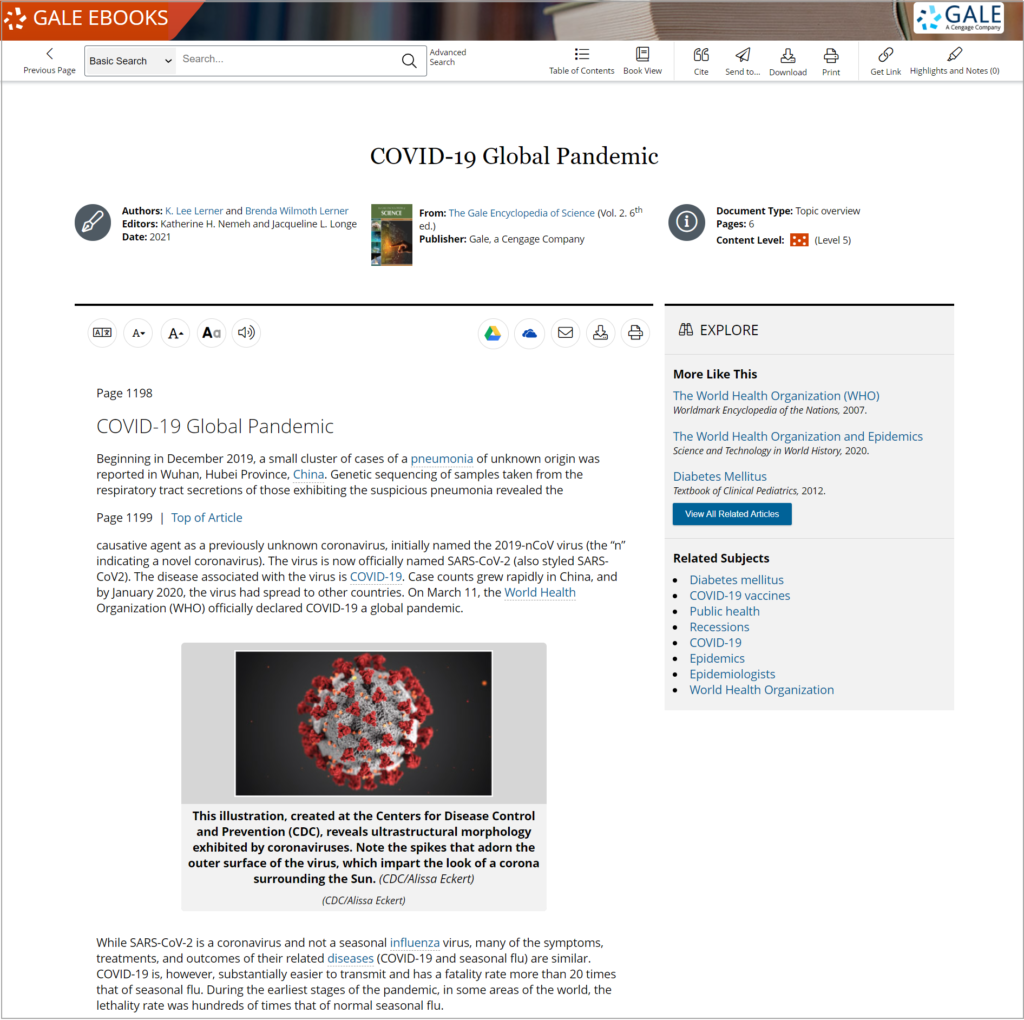| By K. Lee Lerner |
Viruses are constantly undergoing mutation. Genetic mutations, most commonly a set of multiple mutations, produce different viral strains or variants. As we begin 2022, nearing the start of the third year of a global pandemic, the Omicron variant of SARS-CoV-2, the virus responsible for COVID-19 disease, is spreading rapidly around the world. In many countries, including the United States, the Omicron variant quickly displaced the Delta variant as the leading cause of COVID-19.

Since SARS-CoV-2 was first identified, many variants of the virus have evolved. The Omicron variant, first identified in South Africa in November 2021, was quickly identified by the World Health Organization (WHO) as a variant of concern (VOC), subject to special tracking.
A VOC is a variant that shows increased transmissibility or results in more severe disease, causing increased hospitalizations and/or deaths. A VOC may also show resistance to antibodies generated from prior infection or vaccination, and result in reduced effectiveness of treatments.
Variants are offspring viruses with subtle changes in their genetic structure that may dictate changes to surface proteins that affect binding of antigens and other molecular attributes. Variants may differ in measurable characteristics, such as viability, transmissibility, and lethality.
Viral variants are detected by sequencing and then comparing genetic sequences of viruses. Because variants differ genetically, they may also interact differently with, and force changes in, diagnostic tests, medicines, and vaccines.
Variants arise because of mutations in nucleic acids during replication, resulting in changes in the nucleotide sequence. In the case of SARS-CoV-2, the nucleic acid is a single-stranded ribonucleic acid (RNA). In addition to structural, membrane, nucleocapsid, envelope, and accessory proteins are also susceptible to mutation. The SARS-CoV-2 virus has so-called “spike proteins” located on its source that are the key to its ability to infect human cells or be recognized by antibodies.

Mutations may change fitness and are part of the normal mechanisms of evolution. Mutations during replication are usually random, and provide genetic variability that other evolutionary mechanisms, like natural selection, act upon.
It is often difficult to predict functional changes due to mutations. Uncertainty grows with the number of mutations. It takes clinical data and controlled testing to make such determinations.
Early reports showed that the Omicron variant was causing fewer lethal and severe cases. Although vaccines and booster shots were reportedly not quite as effective against the Omicron variant, they were still considered effective—especially at reducing severe disease. The Omicron variant also appeared more capable of causing breakthrough infections in vaccinated people.
Because the Omicron variant is so much more transmissible than prior variants, public health officials fear the number of cases could overwhelm some health-care systems, cause more economic hardship, and ultimately result in more deaths globally than the Delta variant.
Omicron’s high transmissibility also means that more bodies are playing host to the virus, thus increasing chances for future variants to emerge that might evade current vaccines, cause more severe disease, or prove more difficult to treat.
Learn more about SARS-CoV-2 and its variants in the sixth edition of The Gale Encyclopedia of Science.

Meet the Author
Recognized for his use of language, accuracy, and balanced presentation, K. Lee Lerner’s portfolio covering science and global issues for Cengage includes two ALA RUSA Book and Media Awards and two works named Outstanding Academic Titles. Holding degrees in science, education, and journalism, including a master’s degree with academic honors from Harvard, Lerner has served on the board of advisors for the venerable American Men and Women of Science since 2003 and, along with Brenda Wilmoth Lerner, as co-editor for three editions of The Gale Encyclopedia of Science. He was the contributing Editor-In-Chief for Gale’s Encyclopedia of Espionage, Intelligence, and Security. A member of the National Press Club in Washington, D.C., Lerner is an experienced aviator and sailor who has completed two global circumnavigations. His Academia site consistently ranks among those most frequently accessed by students, scholars, and decision makers from around the world. Additional information may be found at scholar.harvard.edu/kleelerner and harvard.academia.edu/KLeeLerner.

